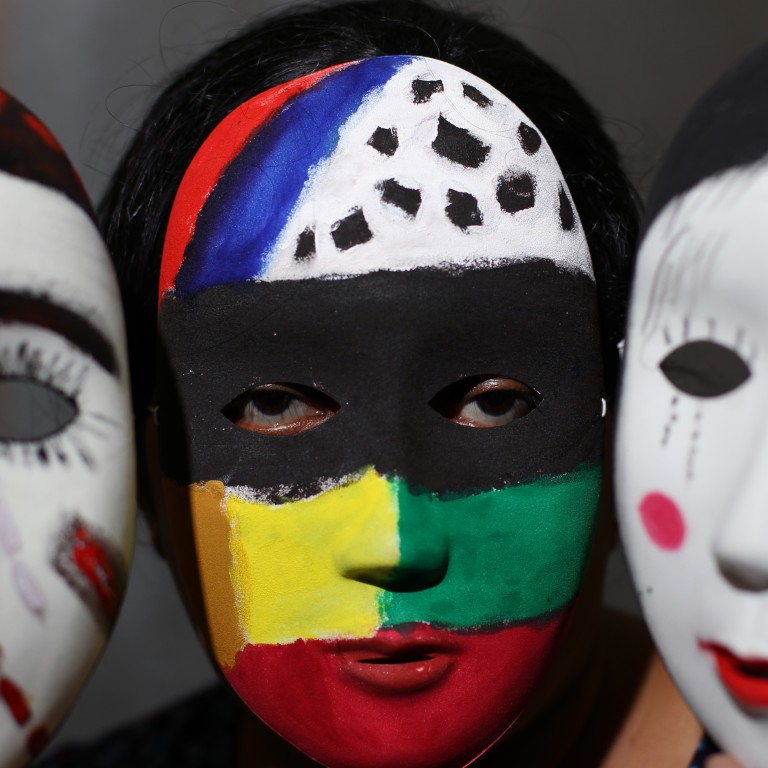
Denial of Hong Kong's refugee past adds to our blinkered policy
Joyce Man says it makes it easy to see asylum seekers as the 'other'
For decades after the Japanese war, my grandfather, a native of Sanshui, Guangdong, never went back to mainland China. He had left his first wife and family behind and had yearned to return, yet he never did. He set up a textile-dyeing factory at Diamond Hill, married my mother's mother, and settled in Hong Kong.
I didn't hear this from him or my grandma, however, but from my mother. My grandparents, like many who had suffered through turmoil, wanted to shield us from their pain. They never spoke about their past, preferring instead to fill our lives with the luxuries they had not had: a dinner table overflowing with food; a stable home; the freedom to live the way we wanted.
The reason never went back to the mainland eluded me for years, until I broached the topic with my grandma recently. , she told me, had been a guard of some kind with the Nationalists. Though he later supported the Communists, he dared not go back, given his past.
If we were to put grandpa's fears into modern legal speak, he sought, and received, protection in Hong Kong from political persecution - the classic definition of a refugee.
Hong Kong was built on the backs of refugees. Yet our government's policy today is this: The UN Refugee Convention and its 1967 Protocol has never applied to Hong Kong, and the government has a "long-established firm policy" of not granting asylum or determining refugee status.
This is all true - technically. Yet any suggestion that Hong Kong has never had refugees is just bad history.
Estimates of the refugee composition in the post-war population during the 1950s to 1970s range between 12 and 30 per cent. Whatever the figure, people fleeing situations where they might face persecution, torture or degrading treatment comprised a significant part of our community.
Circumstantial and political factors led to this denial of our history as a receiver of refugees. The presence of two Chinas at the end of the war made for an awkward situation. The British could not recognise refugees for fear of offending Taiwan. Meanwhile, China denied that the people fleeing its borders to Hong Kong were refugees.
Because of the city's small size and large population, the British government decided against extending the refugee convention to the territory, and, as the handover approached, so did Beijing.
Hong Kong's experience with the influx of Vietnamese boatpeople, which lasted 25 years and cost HK$1.6 billion to process, also left bad memories.
Whatever the reason, the city's refusal to acknowledge its refugee past has resulted in a weak apparatus for determining protection claims and caring for asylum seekers' basic needs. Only a handful of asylum seekers have succeeded in pressing their claims here. Our near-zero success rate contrasts with the global rate, in 2013, of 43 per cent.
Ignorance of our history has also made it easy for us to see refugees as "the other" - outsiders with nothing in common with us - when what they're looking for is exactly what our forebears sought.
Currently, 9,533 applications for non-refoulement protection remain outstanding. In March last year, a unified screening mechanism was introduced to improve the system. However, despite a set of measures that look good on paper - free legal assistance, medical exams, and more - the recognition rate has remained at effectively zero. The Immigration Department has denied claims of unfairness.
Advocates point to a lack of knowledge and training, a bias against applicants, time pressure, and discrimination. I believe our refusal to acknowledge our refugee past also plays a part.
Hong Kong needs long-term strategic policies to build a just mechanism for screening protection claims and assuring asylum seekers receive humane living conditions. Our thinking must involve a consideration of our past. That would open doors to examining previous policies and improving them for the future.
